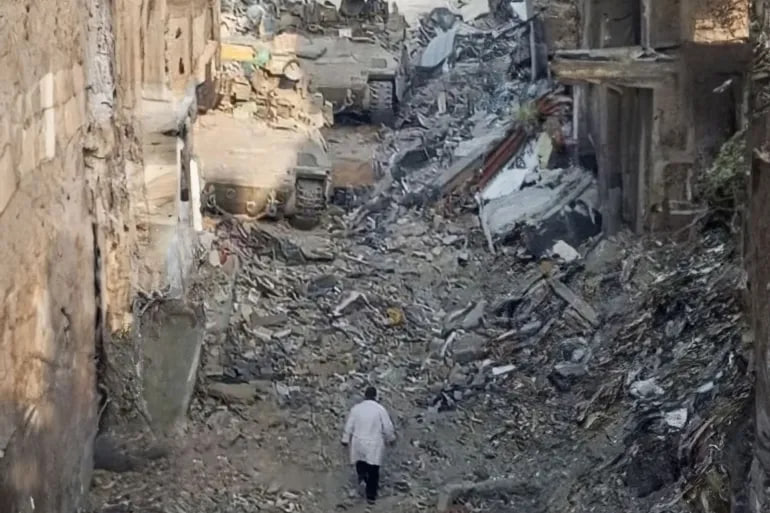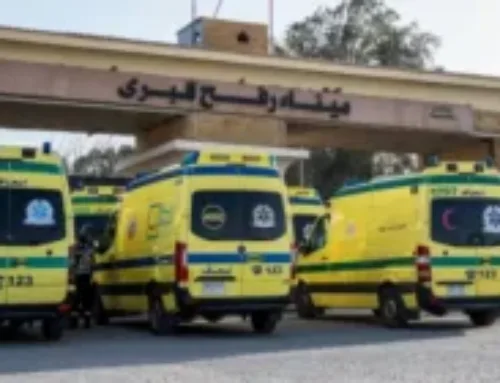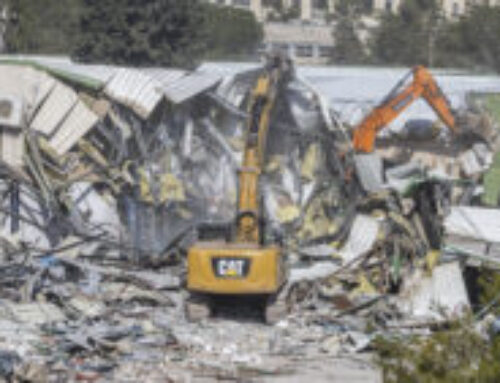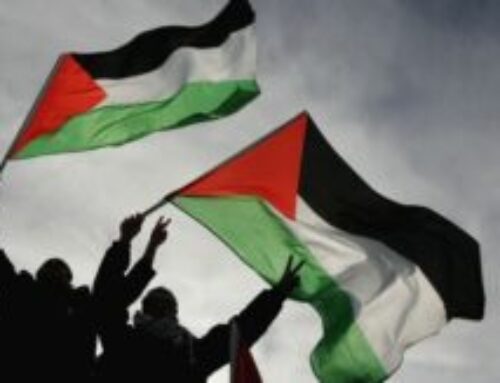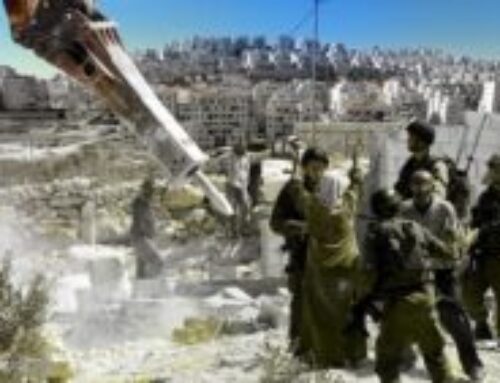In the shadow of a reality that grows more complex every day, Dr. Hossam Abu Safiya stands as a new symbol of an old issue that rewrites the tragedy of the Palestinian human experience in a way that questions international laws, along with the entire system of values of justice and humanity.
Hossam Abu Safiya, the doctor whose hands skillfully worked to mend wounds, now languishes within the cold walls of a cell. His only crime was choosing to remain in Gaza, a land that is merely a narrow strip on the map, yet in reality, it is a vast space for resistance and steadfastness.
The director of Kamal Adwan Hospital, who tirelessly worked to save lives, has become a victim of an occupation that sees every Palestinian as a potential threat, even if they are a doctor armed only with a stethoscope and a scalpel. Abu Safiya’s arrest came under the “Unlawful Combatant” law, a term that seems to have emerged from a fictional narrative, but is, in fact, a vague legal text designed to serve as a sword over the necks of Palestinians. This law, which grants the usurping entity the authority to arrest individuals without a fair trial or even a clear charge, embodies the pinnacle of disregard for international laws and human rights. In Abu Safiya’s case, it seems that his true offense is simply being a human who refused to flee, choosing instead to protect the dream of his homeland with an unarmed body and an unbreakable spirit.
A Different Kind of Arrest
Dr. Abu Safiya’s arrest does not merely represent the detention of an academic or a doctor; it is a blow directed at anyone attempting to build their homeland despite the constraints. Abu Safiya, known for his tireless efforts to improve the healthcare sector in Gaza, suddenly finds himself facing a law that treats him as a “moving threat” to the security of the occupation, while his life has been dedicated to saving lives, not threatening them.
His colleagues in the medical field describe Abu Safiya as a man of calmness and humanity, far removed from any political or military activity. This arrest has sparked a wave of anger within human rights organizations and media circles, as international laws, including the Geneva Conventions, obligate the occupying authorities to provide protection for academics and doctors, rather than making them victims of their repressive policies.
Legal and Humanitarian Implications
The occupying entity often uses its laws as a tool to intimidate Palestinians and break their will. The “Unlawful Combatant” law, which legitimizes the detention of individuals based on “security suspicions” without trial, not only violates international laws but also undermines the foundations of justice. In the case of Abu Safiya, his detention affects not only him personally but also reflects the deep harm inflicted on the entire Palestinian community. The deprivation of a prominent doctor from the community constitutes a humanitarian and health crisis, especially in a region already suffering from a shortage of medical professionals due to the entity’s blockade.
Reactions
Dr. Hussam Abu Safiya’s case has sparked widespread outrage among international human rights organizations. The organization “Physicians for Human Rights” issued a statement affirming that “the detention of academics and medical staff is a blatant violation of international humanitarian law.” They called for his immediate release and ensured a fair trial if there are any substantiated charges against him. For its part, the Al-Mezan Center for Human Rights stated in a statement that the designation of Abu Safiya as an “unlawful combatant” is an arbitrary, dangerous, illegal, and retaliatory measure, which simultaneously demonstrates the public prosecutor’s failure to substantiate its claims and the accusations against the detainee. They emphasized that employing such methods against civilians, especially doctors, has previously led to torture resulting in death and mistreatment.
Despite the absence of any evidence to accuse Abu Safiya of any wrongdoing, the public prosecutor chose to deprive him of his most basic rights to a fair trial by turning him into a hostage. As for the international community, which often adopts a bystander role in such cases, it has limited itself to some statements calling for “restraint” and “respect for the law.” These statements may sound resonant, but they lack any practical impact on the ground.
Arresting the Body, Not the Soul
But the story of Abu Safiya is not just a tale of arrest. It is a story of struggle between a free will and a merciless machine of oppression. Within the walls of the cells, where the occupation tries to suppress Abu Safiya’s spirit, the Palestinian once again demonstrates that prison is merely a physical place. The soul cannot be imprisoned, and hope does not die. In a statement from a family member, it was said: “The arrest of Hussam is an attempt to arrest the hope within us, but he always told us that the occupation cannot defeat the belief in the justice of our cause.”
A Cry to the World
The case of Dr. Hussam Abu Safiya is not just an individual issue; it is a message to the entire world. The usurping entity, which legitimizes oppression through laws, does not only target individuals but also assaults the essence of humanity. Dr. Abu Safiya was not the first to be targeted by the occupying entity in the hallways of hospitals that have turned into frontline defenses against bombardment and siege. According to the Palestinian Central Bureau of Statistics, the genocide in Gaza has witnessed the martyrdom of 1,068 medical personnel.
The continued international silence regarding such violations is a stain on the conscience of humanity. What is required today is not merely statements of condemnation, but real pressure on the occupation to stop using unjust laws like the “unlawful combatant” law, which violates every humanitarian principle. Dr. Hussam Abu Safiya today is a prisoner not only of the occupation but of a global reality that prefers to overlook the suffering of an entire nation. However, his case remains a testament that freedom is not a request but a right that cannot be relinquished. In the shadows of occupation, the Palestinian continues to fight for survival, and the world is called to look into the mirror of its conscience to stand on the side of the Truth.

